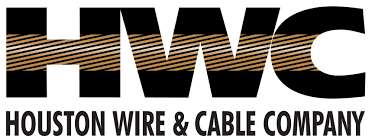On Dec. 23, Nierenberg Investment filed a 13D/A on Houston Wire and Cable (HWCC). The investment adviser expressed frustration that the market value of its long-held position in the micro-cap has “widened substantially over the last two years.”
The filing amended a 13D from Dec.17 of 2018 in which the investment adviser disclosed a 9.99% stake in the electrical wire and equipment supplier.
David Nierenberg, who formed his Camas, Oregon-based firm in 1995, had this to say in the recent filing:
We are frustrated that the gap between HWCC’s market and intrinsic value persists and that it has widened substantially during the past two years. During 2019, while the stock market has risen broadly, HWCC’s share price has fallen 21%, after dropping 30% in 2018.The only things which the investing public has witnessed to close that gap are that insiders have acquired a substantial number of shares and the company repurchased 1.4% of shares in the third quarter. While we are delighted with the frequency and size of the insider buys, those actions have failed to move the dial. That’s not our verdict; it’s the market’s.
Nierenberg first disclosed a 5% stake in HWCC back in Sept. of 2014, when the stock was trading around $12.
Houston Wire and Cable weekly since 2014.

Houston Wire & Cable provides a wide range of specialty wire and cabling to other electrical distributors, as well as value-added services. About half of HWCC’s sales are related to the oil and gas sector. Over the last several years, Houston Wire has been hurt by weak demand in that sector.
| Revenue | Net Income | EPS | |
| TTM | 343,905 | 4,834 | 0.29 |
| 12/31/18 | 356,858 | 8,636 | 0.53 |
| 12/31/17 | 317,697 | -222 | -0.01 |
| 12/31/16 | 261,644 | -6,006 | -0.37 |
| 12/31/15 | 308,133 | 2,044 | 0.12 |
Nierenberg Investment: HWCC’s current tangible book value is $4.30 per share.
What is the intrinsic value of HWCC referenced by Nierenberg in the 13D/A filing? A year ago in a letter to management, Nierenberg calculated a present value of $11.73 for HWCC. Back then he saw an opportunity for the shares to quadruple over time “through free cash flow, shrewd asset monetization, and (stock) repurchase. Nierenberg wrote that “the insiders have not been stupid buying so many shares in the past 16 months.”
In Houston Wire’s Q3 2019 earnings call, Damon Benedict of Nierenberg Investment said:
…by my math your quarter ending tangible book value is $4.30 per share. And as I look at small and micro-cap equity universe, it’s pretty hard to find good companies with solid histories of profitability well run and executing well at a discount to tangible book. So looking at that on the downside support and the potential for $1 in earning power again at some point with the $4 stock we like our investment odds here.
A year ago, David Nierenberg saw “little reason for Houston Cable to be a public company.”
As David Nierenberg noted, HWCC insiders have been buying their own shares over the last couple years. Since August of 2017, HWCC officers and directors have bought 347,000 shares on the open market, spending $2.2 million, for an average cost of about $6.38.
HWCC has also been repurchasing shares. In the Q3 call, CEO Jim Pokluda said:
At the end of the quarter, we had $20.3 million in available (repurchase) capacity. During the third quarter, we repurchased $1.1 million of stock or 235,000 shares. This represents 1.4% of the shares outstanding. Currently, the program has $8.1 million available to repurchase outstanding shares of common stock from time to time depending on market conditions, trading activity, business conditions and other factors.
A year ago, Nierenberg said he saw little reason for HWCC to be a public company.
“…HWCC’s average daily trading volume, only $229,000 as of December 14, 2018, does not facilitate meaningful or easy liquidity. The frictional cost to trade shares is relatively high. At this moment no brokerage firm or investment bank writes about the company. Given the economics of brokerage and investment banking, that is hard to change.”
Twelve months after suggesting HWCC should be a private company, Nierenberg Investment filed a 13D/A on Houston Wire and Cable. The company’s stock price has continued to decrease, and David Nierenberg’s frustration with HWCC has grown.
Contact Mark about investing based on SEC filings and smart money disclosures.
Disclaimer:
This investment blog (the “Blog”) is created and authored by Mark W. Gaffney (the “Content Creator”) and is published and provided for informational and entertainment purposes only (collectively, the “Blog Service”). The information in the Blog constitutes the Content Creator’s own opinions. None of the information contained in the Blog constitutes a recommendation that any particular security, portfolio of securities, transaction, or investment strategy is suitable for any specific person. You understand that the Content Creator is not advising, and will not advise you personally concerning the nature, potential, value or suitability of any particular security, portfolio of securities, transaction, investment strategy or other matter. To the extent any of the information contained in the Blog may be deemed to be investment advice, such information is impersonal and not tailored to the investment needs of any specific person.
From time to time, the Content Creator or its affiliates may hold positions or other interests in securities mentioned in the Blog and may trade for their own account(s) based on the information presented. The Content Creator may also take positions inconsistent with the views expressed in its messages on the Blog.
The Content Creator may hold licenses with FINRA, the SEC or states securities authorities and these licenses may or may not be disclosed by the Content Creator in the Blog.
Investing in the investments discussed in the Blog may be risky and speculative. The companies may have limited operating histories, little available public information, and the stocks they issue may be volatile and illiquid. Trading in such securities can result in immediate and substantial losses of the capital invested. You should use invest risk capital, and not capital required for other purposes, such as retirement savings, student loans, mortgages or education.




